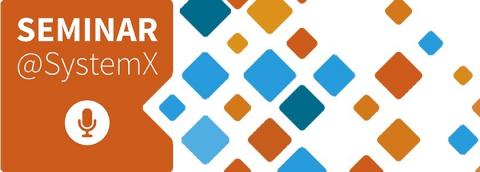
Francisco Chinesta (ENSAM, Paris) animera un Seminar@SystemX sur le thème « TWINS in the third millennium engineering and industry »
Last century technology was based on physical and mathematical models that allowed fine and accurate predictions when applied to determinists systems. That technological framework faced several difficulties, the main of them related to (i) the system size (it was successfully applied in small systems and components); (ii) the amount of uncertainty they involved (the smaller the better); (iii) the desired characteristic response time (difficult to address real-time responses); and (iv) the complexity of the involved physics (simplifying hypotheses induce inaccuracies).
The XXI century technology involves larger expectations, related to modelling and predicting responses of larger complex systems, often systems of systems, extremely large, extremely uncertain, extremely complex (multiphysics and multiscale) and their responses are expected to fulfil the stringent real-time constrains that decision-making imposes.
Addressing these complex systems of systems becomes impossible within the last century modelling paradigm, the one based on physics and its mathematical manipulation. New techniques enable the construction of realistic representations of the real systems: (i) Model Order Reduction; (ii) Physics-aware artificial intelligence; (iii) Data-driven modelling; (iv) Data-assimilation, reparation, completion and curation; (iv) AI-based control and decision making; (v) Physics-based and data-driven models fusion; (vi) functionalities integration within the so-called twins (virtual, digital and hybrid twins)
Last century technology was based on physical and mathematical models that allowed fine and accurate predictions when applied to determinists systems. That technological framework faced several difficulties, the main of them related to (i) the system size (it was successfully applied in small systems and components); (ii) the amount of uncertainty they involved (the smaller the better); (iii) the desired characteristic response time (difficult to address real-time responses); and (iv) the complexity of the involved physics (simplifying hypotheses induce inaccuracies).
The XXI century technology involves larger expectations, related to modelling and predicting responses of larger complex systems, often systems of systems, extremely large, extremely uncertain, extremely complex (multiphysics and multiscale) and their responses are expected to fulfil the stringent real-time constrains that decision-making imposes.
Addressing these complex systems of systems becomes impossible within the last century modelling paradigm, the one based on physics and its mathematical manipulation. New techniques enable the construction of realistic representations of the real systems: (i) Model Order Reduction; (ii) Physics-aware artificial intelligence; (iii) Data-driven modelling; (iv) Data-assimilation, reparation, completion and curation; (iv) AI-based control and decision making; (v) Physics-based and data-driven models fusion; (vi) functionalities integration within the so-called twins (virtual, digital and hybrid twins)
